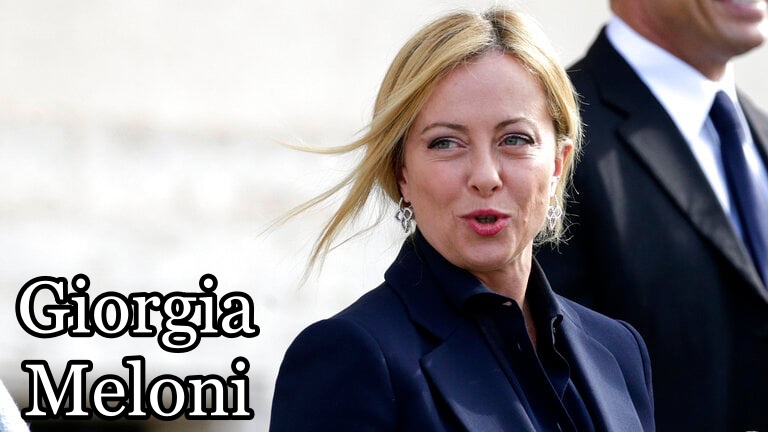In today’s digital age, not everything we see online is real. The rapid rise of AI technology has led to the creation of deepfake videos, which are becoming increasingly difficult to distinguish from reality. One such video has recently gone viral, showing Italian Prime Minister Giorgia Meloni and Tesla CEO Elon Musk engaging in a seemingly intimate moment.
But this video is not what it appears to be. In fact, it’s a deepfake – a highly convincing AI-generated fabrication that has caused a stir online. Here’s what you need to know about this viral video, its implications, and why it’s more dangerous than you might think.
The Viral Deepfake: A Distorted Reality
The video in question shows Prime Minister Meloni and Elon Musk appearing to share a kiss during a public meeting at the Nraam Cathedral. The moment is presented as an affectionate interaction between the two leaders, with captions such as “Aore,” which implies romantic affection. However, despite the seemingly realistic visuals, this video is a product of AI manipulation.

Upon closer inspection, there are clear signs that the video is fake. The hands of both individuals appear distorted at times, and when the figures turn or move, their faces look unnatural and inconsistent with the people they are supposed to represent. Even the background is warped, further highlighting the video’s artificial nature.
Despite these visible discrepancies, the video has gained massive traction across social media platforms, and millions of people have already been misled into believing it’s real. This phenomenon is not just concerning—it’s a dangerous precedent for the digital age.
The Perils of AI-Generated Content
In a world where misinformation spreads like wildfire, AI-generated content poses a new and serious threat. Deepfakes, like the one involving Meloni and Musk, can be weaponized to create confusion, distrust, and even political instability. When world leaders are depicted in manipulated videos, the consequences can be far-reaching and catastrophic.
One of the most alarming aspects of deepfake videos is how easily they can be amplified. Social media platforms, where misinformation often spreads unchecked, become breeding grounds for these falsified narratives. In the case of Giorgia Meloni, the impact of such content can be particularly damaging, as she is already subjected to scrutiny and gender-based biases in her role as Italy’s first female prime minister.
The Gendered Impact on Female Leaders
For female leaders like Meloni, the stakes are even higher. Women in power often face a unique set of challenges—stereotyping, gendered criticisms, and the constant need to prove their competence in male-dominated political environments. Deepfakes that falsely portray female leaders in compromising or trivializing situations not only harm their personal reputations but also undermine their professional legitimacy.
The viral AI video of Meloni and Musk is an escalation of this trend, moving from satire or memes to outright fabricated content. Such distortions can reduce a female leader’s credibility, turning serious political figures into the subject of tabloid-like gossip, and eroding their authority in the eyes of both the public and the international community.
Political and Diplomatic Consequences
Beyond the personal and professional impact on leaders, AI-generated content also carries significant political risks. Fabricated videos like the one with Meloni and Musk could have major diplomatic consequences. Misinformation could sow unnecessary discord among international allies and adversaries, potentially destabilizing governments or inciting tensions between nations.
Imagine a scenario where AI technology is used to create a video that portrays a world leader making inflammatory remarks, engaging in inappropriate behavior, or compromising their country’s national interests. The fallout from such a fabrication could be catastrophic, leading to international condemnation, broken alliances, and a loss of public trust in democratic institutions.
The Call for Ethical Accountability in the Age of AI
The viral deepfake video of Giorgia Meloni and Elon Musk serves as a chilling reminder of the dangers that come with the rapid advancement of AI technology. As AI continues to evolve, society must confront the ethical dilemmas posed by its capabilities. We cannot allow the manipulation of truth to become commonplace.
In a world where anyone can create realistic deepfakes, it is crucial that we as a society prioritize truth, accountability, and transparency in our digital spaces. The outrage sparked by videos like these should not be fleeting. Instead, it should be the catalyst for change, sparking a global conversation about the ethical use of AI and the responsibility of tech companies to combat misinformation.
Conclusion: The Need for Vigilance and Media Literacy
As we move further into the digital age, it is essential for individuals to remain vigilant about the content they encounter online. Videos like the deepfake involving Giorgia Meloni and Elon Musk may seem harmless at first, but they can have significant implications for both personal reputations and global politics. By fostering media literacy and critical thinking, we can equip ourselves to better navigate the complex landscape of AI-generated content.
In the end, truth must remain a cornerstone of our digital age. It is up to us—governments, tech companies, and individuals—to ensure that AI technology is used responsibly and ethically, without compromising the integrity of our leaders or our societies.
Read More:


2 thoughts on “Giorgia Meloni & Elon Musk: Truth Behind the Viral AI Video”